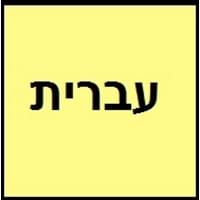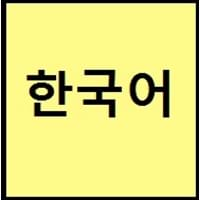Countries
Israel
China, Jilin Province, North Korea, South Korea, Yanbian
National Language
Israel
North Korea, South Korea
Second Language
Israel
Not spoken in any of the countries
Speaking Continents
Africa, Asia, Europe
Asia
Minority Language
Poland
Japan, People's Republic of China, Russia, United States of America
Regulated By
Academy of the Hebrew Language
The National Institute of the Korean Language
Interesting Facts
- The original language of Bible is Hebrew.
- The men and women use different verbs in hebrew language.
- Korean has borrowed words from English and Chinese.
- Korean has two counting systems. First, is based on Chinese characters and numbers are similar to Chinese numbers, and second counting system is from words unique to Korea.
Similar To
Arabic and Aramaic languages
Chinese and Japanese languages
Derived From
Aramaic Language
Not Available
Alphabets in
Hebrew-Alphabets.jpg#200
Korean-Alphabets.jpg#200
Writing Direction
Right-To-Left, Horizontal
Left-To-Right, Horizontal, Top-To-Bottom
Hello
שלום (Shalom)
안녕하세요. (annyeonghaseyo.)
Thank You
תודה (Toda)
감사합니다 (gamsahabnida)
How Are You?
מה שלומך? (ma shlomxa)
어떻게 지내세요? (eotteohge jinaeseyo?)
Good Night
לילה טוב (Laila tov)
안녕히 주무세요 (annyeonghi jumuseyo)
Good Evening
ערב טוב (Erev tov)
안녕하세요 (annyeonghaseyo.)
Good Afternoon
אחר צהריים טובים (Achar tzahara'im tovim)
안녕하십니까 (annyeong hashimnikka)
Good Morning
בוקר טוב (Boker tov)
안녕히 주무셨어요 (An-yŏng-hi ju-mu-shŏ-ssŏ-yo)
Please
בבקשה (bevekshah)
하십시오 (hasibsio)
Sorry
סליחה! (Slicha)
죄송합니다 (joesonghabnida)
Bye
להתראות (Lehitraot)
안녕 (annyeong)
I Love You
אני אוהבת אותך (Ani ohevet otcha)
당신을 사랑합니다 (dangsin-eul salanghabnida)
Excuse Me
בבקשה!
실례합니다 (sillyehabnida)
Dialect 1
Ashkenazi Hebrew
Jeju
Where They Speak
Israel
South Korea
How Many People Speak
Not Available
Dialect 2
Samaritan Hebrew
Gyeongsang
Where They Speak
Israel, Palestine
South Korea
How Many People Speak
Not Available
Dialect 3
Yemenite Hebrew
Hamgyŏng
Where They Speak
Israel
China, North Korea
Speaking Population
Not Available
Second Language Speakers
Not Available
Native Name
עברית / עִבְרִית (ivrit)
한국어 (조선말)
Alternative Names
Israeli, Ivrit
Hanguk Mal, Hanguk Uh
French Name
hébreu
coréen
German Name
Hebräisch
Koreanisch
Pronunciation
[(ʔ)ivˈʁit] - [(ʔ)ivˈɾit]
Not Available
Ethnicity
Not Available
Koreans
Origin
1000 BC
Before 1st century
Language Family
Afro-Asiatic Family
Koreanic Family
Subgroup
Semitic
Not Available
Branch
Canaanitic
Not Available
Early Forms
Biblical Hebrew, Mishnaic Hebrew, Medieval Hebrew, Hebrew
Old Korean, Middle Korean and Korean
Standard Forms
Modern Hebrew
Pluricentric Standard Korean, South Korean standard and North Korean standard
Signed Forms
Signed Hebrew
Korean Sign Language
Scope
Individual
Individual
ISO 639 6
Not Available
Not Available
Glottocode
hebr1246
kore1280
Linguasphere
12-AAB-a
45-AAA
Language Type
Living
Living
Language Linguistic Typology
Subject-Verb-Object, Verb-Subject-Object
Subject-Object-Verb
Language Morphological Typology
Fusional, Synthetic
Agglutinative
Hebrew and Korean Greetings
People around the world use different languages to interact with each other. Even if we cannot communicate fluently in any language, it will always be beneficial to know about some of the common greetings or phrases from that language. This is where Hebrew and Korean greetings helps you to understand basic phrases in Hebrew and Korean language. Hebrew word for "Hello" is שלום (Shalom) or Korean word for "Thank You" is 감사합니다 (gamsahabnida). Find more of such common Hebrew Greetings and Korean Greetings. These greetings will help you to be more confident when conversing with natives that speak these languages.
Hebrew vs Korean Difficulty
The Hebrew vs Korean difficulty level basically depends on the number of Hebrew Alphabets and Korean Alphabets. Also the number of vowels and consonants in the language plays an important role in deciding the difficulty level of that language. The important points to be considered when we compare Hebrew and Korean are the origin, speaking countries, language family, different greetings, speaking population of these languages. Want to know in Hebrew and Korean, which language is harder to learn? Time required to learn Hebrew is 44 weeks while to learn Korean time required is 88 weeks.





